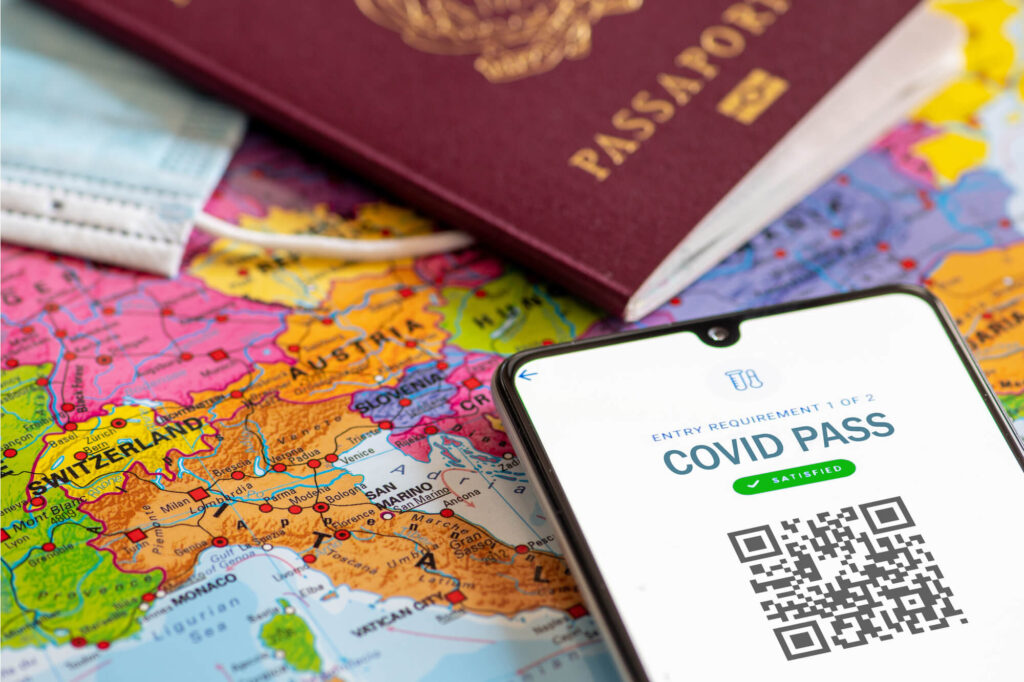The Digital COVID Certificate of the European Union officially came into force on July 1, 2021. By gathering all the information concerning the vaccination against COVID-19 and the results of PCR tests, this health travel pass could help ease travel for airline customers among the airports of the 27 European Union member states as well as Andorra, Iceland, Liechtenstein, Monaco, Norway, and Switzerland.
The certificate presents itself as a QR Code, available either on paper or digitally. In addition to the traveler’s identity, it includes information relating to vaccination (type of vaccine, number of doses received, date of injection) and testing (date and type of test, negative or positive result).
EU authorities hope the pass will boost the tourism sector brought to its knees by the pandemic. A report of the United Nations Conference on Trade and Development released on June 30, 2021, estimates that the global economy could lose over $4 trillion due to the COVID-19 impact on tourism.
Throughout the pandemic, airlines have called for more coordination within the bloc, fearing chaotic situations in airports during the summer. In April 2021, IATA introduced its own Travel Pass to fluidify the post-COVID passenger experience. “We want to offer the possibility for people to go through their airport as seamlessly as before, and critically avoid any bottleneck on arrival,” IATA director Willie Walsh commented.
Down the line, the EU believes the digital COVID certificate will “help ensure that the restrictions currently in place can be lifted in a coordinated manner.” However, concerns are mounting about a possible fourth wave of COVID-19 after the summer season, as vaccinations are leveling off while the new Delta variant, more contagious, represents most new diagnoses in Europe.
